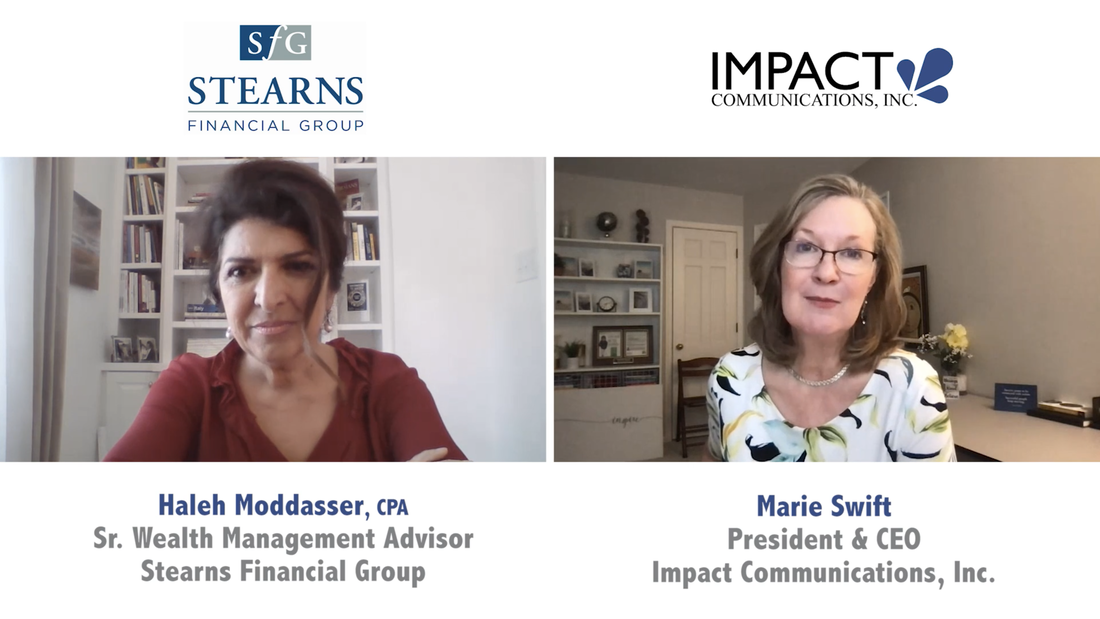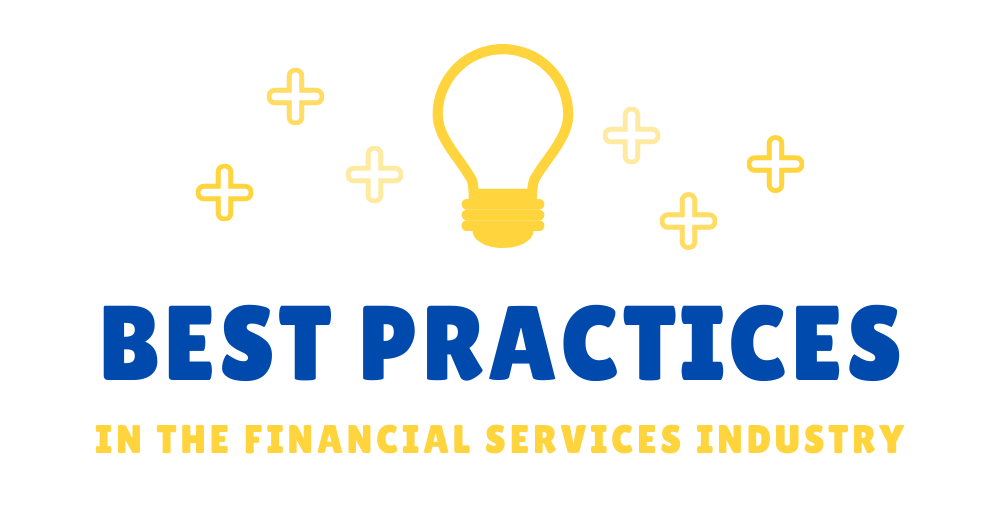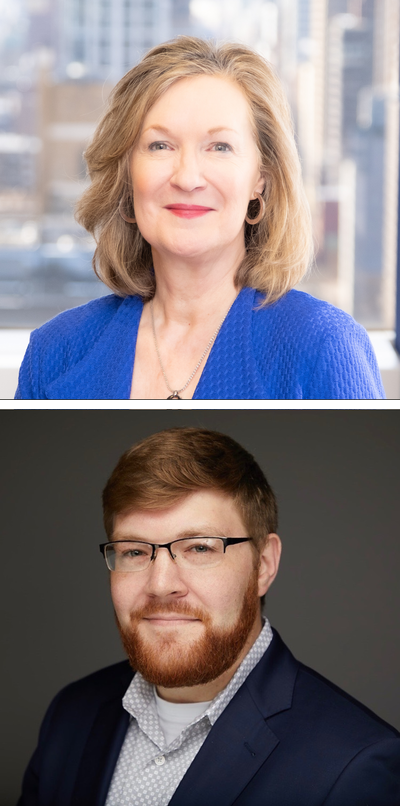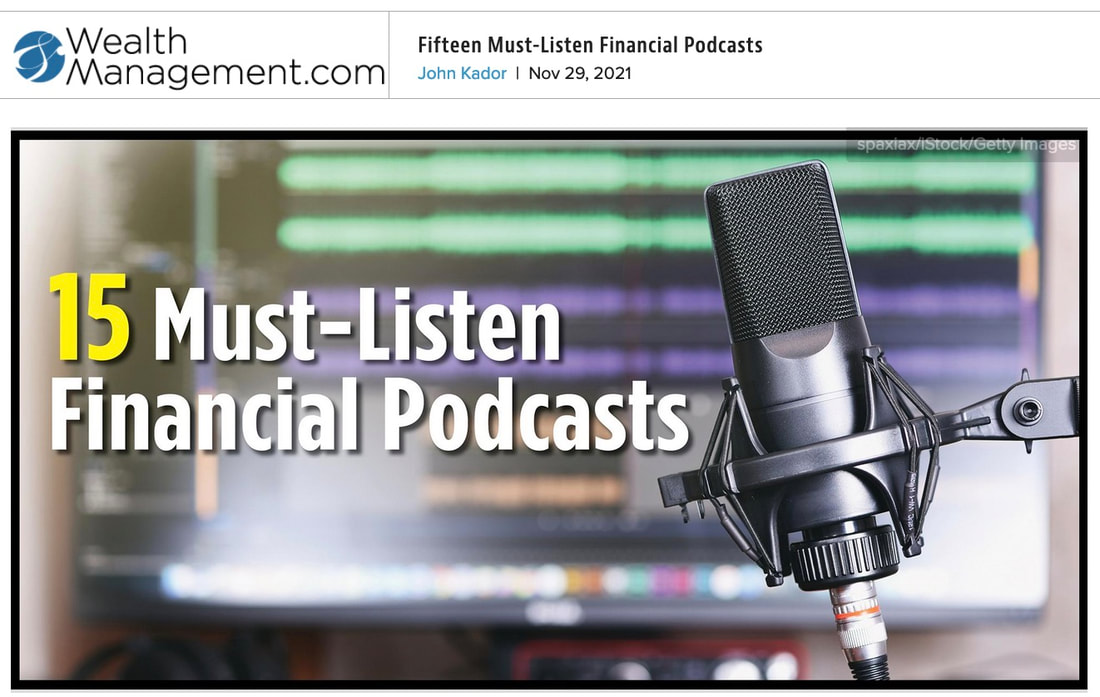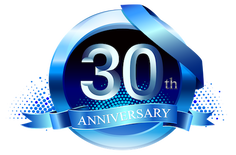|
In this Swift Chat video / podcast conversation, Marie Swift of Impact Communications, Inc. speaks with Haleh Moddasser of Stearns Financial Group. The two talk about Haleh's new podcast "Women On Top with Haleh Moddasser," Haleh's two books (one on gray divorce and one on ESG investing), and how Haleh sees the role of women in creating social change through the power of the purse and their investment decisions.
Listen to all the Women On Top episodes at:https://www.women-on-top.libsyn.com/
Learn more about Haleh Moddasser at: https://www.halehmoddasserauthor.com/ What I hope to do with this podcast is to show other women that really we're limited by our own imaginations and the stereotypes and the way that we were raised and virtually all of my guests are boomer women. At the youngest, they're in their fifties and these women are starting businesses. They're starting social movements. They have broken every barrier. It is possible." Transcript of Conversation
Marie Swift: Well, hello and welcome back to another great Swift Chat. Today I'm joined by Haleh Moddasser. Haleh is a Partner and a Senior Wealth Management Advisor at Stearns Financial Group. Stearns has a couple locations in North Carolina. She is also the author of two books and has just launched a new podcast called Women On Top with Haleh Moddasser. Haleh, you and I have had the opportunity to work together over the past couple of years. I just am so delighted with your trajectory. I mean, you're just a rock star. I think that our listeners and viewers for the Swift Chat are going to take away something that will inspire them and help them maybe take another step forward as a thought leader. So, thanks for being here. Haleh Moddasser: Well, thanks for having me. I don't know if I can live up to what you just described, but I appreciate it just the same. Swift: I think it's so great when professionals and especially women or others who may not have had the limelight before can rise to the top and be dubbed a thought leader. Recently you've been named a thought leader in a couple of different ways. I know that for the ThinkAdvisor Luminaries Class of 2021, you've been dubbed a leader in the RIA, the Registered Investment Advisory Community, and also your recent acknowledgment by InvestmentNews with their Women to Watch Award. Congratulations on both of those. Moddasser: Thank you very much. Swift: Let's talk about some of your accomplishments with this idea that our listeners and our viewers are going to find something that might help them take another step forward and maybe be a little bit more courageous. I know that when I started my business, I wasn't really sure who I was 30 years ago. I was younger and now I'm older and wiser, but I've made it my mission to be true to myself, to be authentic, to find my voice. I think I've finally now at this juncture found my voice and now I want to help others find theirs and just really step out of their comfort zone, because I think when we do that it really does inspire other people. That's what you're doing with your books and your new podcast -- and what's coming out in your research. 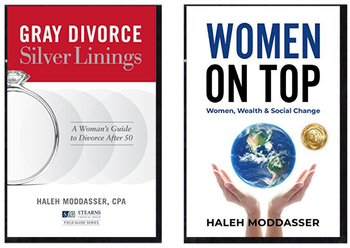
I want to talk a little bit about all that, but for our listeners who don't know you, Haleh is the author of two books. The first one is Gray Divorce, Silver Linings: A Woman's Guide to Divorce after 50 and the latest one is Women on Top: Women, Wealth and Social Change. In a minute, Haleh, I'm going to ask you to share a little bit about why you wrote these books and how you did your research.
But over the past 10 years, you have really built your practice at Stearns Financial Group and it's devoted primarily to women and financial empowerment of women. This is a topic, of course, that you and I are both really passionate about. We come at it from different angles, me as a communicator and, well you're a communicator too, but you're also a financial advisor. And then all of your speaking engagements, your media appearances with Forbes, Barron's, Reuters, Bloomberg and many more. The awards that we've just mentioned. This is cool too: on your bio you spoke at Harvard Chan School of Public Health. How cool was that? 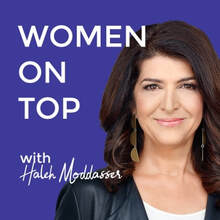
Moddasser: It was so surreal that little old me was on the Harvard Chan Campus. I just couldn't even believe it, but it was truly an honor. I spoke to the women professors at the school of public health and learned that they just basically have the same issues as all the rest of us women.
How do you have a career with children? How do you compete with men in the workforce, salary, parity, gender parity, it's all the same. I was delighted to speak to that group and actually every group of women in tackling these issues of our time. Swift: Well, thank you for doing that and thank you for lifting women up. I think anybody who needs a leg up, I'm for the underdog, I'm always rooting for the underdog, whether it's a man woman, or, some other category of human being, I'm all for human beings. Let's talk a little bit about your podcast, which is going to launch on October 12th, and it's called Women on Top with Haleh Moddasser which is a kind of dovetail from your great book. Your first episode is Jane Wollman Rusoff who is an accomplished journalist and she's also the host of the ThinkAdvisor Luminaries podcast series. I'm just wondering about the podcast and the vision for that. Maybe you could just speak to that and while you're doing this on top of your book, MOTIVATION FOR WRITING TWO BOOKS Moddasser: Well, my hope is that I reach more people, more women in particular. I will say, Marie, that you asked why did I write these books? To be honest, it was part of that journey of finding my own voice. It started with my own divorce, which was a shock to me and came after almost 25 years of marriage. I can just feel my own trajectory in my writing. The books were several years apart. Initially it was, oh my gosh how am I going to take care of myself and my family? It started from a place of chaos and survival. I now work with a lot of divorcing women and I feel their pain. You have this, what you think is this blanket of security, and at the end of the day, 95% of women die alone. Whether you're married or single, it kind of doesn't matter. This realization that I had that, in this society at least, money is power, and that women need to know how to manage their finances for financial independence and power. It kind of evolved as I evolved into a place of wholeness and it went beyond survival and into, what can I do with all this wealth? How do I make this world a little bit better for my children? I think that working with high net worth women, that was a recurring theme, most of us have raised children. We've done the hard work of building families, and we want to continue to give back, that doesn't end. I quickly learned through my research for this second book that women today control about two thirds of the nation's wealth, which is where the title Women On Top came from. This is an area where women are already on top today. They control almost as much as the national debt, in terms of wealth. So, how did these women wield that power? Can they wield that power? That's kind of where the genesis of the second book came from is, how do I use my investments to invest in companies that aligned with my values and make a difference? Because corporations obviously do more than give to shareholders. They impact all of us as consumers. They impact employees. They really wield a lot of power themselves. If we women can send that signal about the things we care about, they will listen. They want us to be happy. Swift: Yes, that's so inspiring. I love the book and the research. I'm not divorced, I've been married for 40 years. We just had our 40th anniversary in a picnic area at one of our local parks and it was a surprise. Our kids catered it and had a bunch of family members show up, which in COVID times is really a treat to be able to get together again, now that we see a little bit more stability in the health and safety. I'm just thinking now about your podcast series and how that will bring to life, these additional conversations with women or people who are actually supporting this whole idea of, as you say, addressing societal problems, chipping away at the proverbial glass ceiling, supporting the financial future and wellbeing of women. Could you talk a little bit about the podcast series and what some of your favorite episodes have been that you've recorded so far? GUESTS INTERVIEWED FOR WOMEN ON TOP PODCAST Moddasser: Jane is definitely one of my favorite episodes because when she started out as a journalist it just wasn't common for women to break as many barriers as she has. She has interviewed virtually any famous person that you can think of. I mean, the list is long, and I cite them in the podcast so I hope our viewers will listen, but she really was just a maverick. She never let that glass ceiling stand in her way. She believed everything was possible. What I hope to do with this podcast is to show other women that really we're limited by our own imaginations and the stereotypes and the way that we were raised and virtually all of my guests are boomer women. At the youngest, they're in their fifties and these women are starting businesses. They're starting social movements. They have broken every barrier. It is possible. So, my hope is that it will inspire other women that we're not too old. We have a lot of wealth. We have knowledge and wisdom and that we can make a difference, it's not too late for us. Swift: Yes, I happen to be an accidental entrepreneur and I'm so glad for the journey and just figuring it out, being able to make a difference in my little circle. Looking at your series and the ones that I've listened to because of course I get to preview before they're released to the general public. I've listened to the four that you have, and maybe you've done a fifth that I don't know about, but Jane Wollman Rusoff is your October release. You've talked a little bit about that. The next up is Jean Marie Clark, and then we have Stephanie link and Tracy MacNeil and every single one of those, I was just, I got goosebumps, like listening to their stories and seeing them on camera. Whether you listen to the podcast or watch it on YouTube and Vimeo, where we're going to have links on HalehModasserAuthor.com, that's Haleh's website. We hope that you will lean into these conversations. I wonder if you could comment on your conversation with Stephanie. Moddasser: Stephanie was really incredible. First of all, she is a regular contributor to CNBC. She worked with Jim Cramer. Every other minute, I see her on the news. I was truly honored that she would do this podcast for us, but she is the Head Portfolio Manager at Hightower Advisors, billions of dollars’ worth of assets and just in an industry that is dominated by men. Four out of five financial advisors are men, but in the finance industry as a whole, it's probably an even greater number. So, to have someone like Stephanie on the show was so inspiring, and again, she just knows no balance. She doesn't view her gender as a barrier. This is the one thing that I have found in common with the women that I've interviewed is that they will not put themselves in that stereotype, even if the rest of the world does. It makes a difference. She was just remarkable with what she brought to the table. We're used to seeing her on TV and it's all about finance and numbers and stocks. All of a sudden, we got up close and personal with her, how she was raised, the influence that our dad had on her. What she aspired to do, what it's like being a mother and married now and having a career of that magnitude. I think this is what I love about interviewing these women is that we're all so much alike. We all have the same struggles and issues balancing and she just plowed ahead and did what she had to do, and she's done a magnificent job. I hope everyone will listen in that episode. Swift: So that one we've got slated for December. And in November, this one was so fun, Jean Marie Clark from PAX Philomena. How cool is that? Tell us about Jean Marie. Moddasser: Oh, she's amazing. She actually was born, I think, in India and immigrated to the U.S. when she was maybe two years old. She grew up in sort of this Indian culture in Arizona and then suddenly went off to school at Columbia, I think. So, she was just out of her element and had to kind of find her way and her voice. She of course brings a global perspective whereas many people don't have that. She eventually ended up getting a job in textile and design and worked for many years on that, but her parents had always told her that if she didn't start a company by the time she was 50 it would never happen. So, right on the cusp of turning 50, she decided it was now or never and she decided to start her own brand of clothing. This is no small task. I mean, we all know how many brands of clothing there are out there. It's not easy to break into a market, but she used all of her international connections, had the fabric manufactured in India with this beautiful screen-print technology, had it tailored and made in Italy and sells it in the U.S. and lo and behold, her design was selected for the Oprah show, which suddenly made her sales completely take off during the pandemic when she couldn't do her normal job, because she couldn't travel. So, all of a sudden she just had fantastic growth and she is so excited and her clothes are so beautiful. I ended up buying several for myself and so I'm really excited about having our listeners go to her website, check out what she's doing and recognize that she's a woman who didn't even start on this path till she was in her fifties. Swift: What else is cool is she's actually modeling her clothing and she didn't get a young woman, a model. She's just like a real woman wearing the clothing and it's so beautiful. I think it's such a lovely story. And she also has, as I think all of your guests do, but I remember this from Jean Marie, she has a passion for all things Mother Theresa, and the work that they're doing with is it the convent? I forget the name, but you're with me on that right? Moddasser: Yeah. I think she donates 10% of the proceeds of all her sales to the Mother Teresa Fund in the United States. I can't remember the exact name of it either, but most of the women I talked to are doing good while doing well for themselves and that is sort of a theme in the book with the ESG investing. I love that here are real life examples of women who continue to give back while leveraging their skill set. Swift: Yeah. The last one that we'll talk about here today is Tracy MacNeil. This is like totally different from anything I have ever heard or seen in an interview. It's about women's health. Could you talk a little bit about the medical technology and what they're doing? What Tracy's doing? Moddasser: Tracy is remarkable. Not only is she a woman CEO of a startup, which the numbers of women that do that it might be something like 2%, but she also was able to raise venture money so that narrows it even further. She's a woman doing all of this, and her startup deals with women's health. Which every single barrier that you would want to touch on Tracy touches on. The products that she is working on and they're right now in FDA trials are really remarkable. I don't know if the audience knows this, but women's health advances lags so far behind men's health care that it's kind of ridiculous. For years and years, we thought women, if they had a heart attack that they would have chest pain and their left arm would hurt. That's what happens to men. Women actually don't behave that way. They have backache and they're nauseous. This idea that women are exactly like men, except for their reproductive organs is just wrong. I love what Tracy's company is doing because she's dealing specifically with issues that pertain uniquely to women. In this case, it has a lot to do with childbirth and the damage that's done to women during that process let's call it. In terms of incontinence, post-birth sexuality, I mean, there's a lot that has to do with the pelvic floor, which from the beginning of time women just gave birth and there was nothing done to this. Well, it turns out that there are things that we can do that actually reduced pelvic floor injuries by something like 60%, the early studies show. This is a huge advance for women, and I was delighted to talk to her and her passion about working in that space. Swift: Well, I can't wait to see what you have next and I know that you're actively looking for great guests. So, listeners of Swift Chats or anybody who hears, sees or learns about the Women on Top with Haleh Moddasser podcasts, please get in touch with Haleh through HalehModdasserAuthor.com. That's her website. You'll find links to all the videos and the podcast series and the books, and much, much more. Haleh, I want to talk about time and I look at what you've done and I listen and watch and hear what these other women are doing. I'm thinking, how do you get so much done? FINDING TIME TO FOCUS AND ACHIEVING SO MANY ACCOMPLISHMENTS Moddasser: Well, let's just say I don't get a lot done. I get some things done professionally and it always comes at a cost right. I'm not one of those women that believes that you can have it all at one time. I think you can have it all, but not at the same time. I carved out a period of time for my research and my books. I just knew that I wasn't going to do a whole lot of other extracurricular activities let's call it. It was enough to have a job and to try to do that work outside of the job. You'll be pleased to know that since I wrote the books, I actually went off and got married. I shifted my attention to my personal life and that really works. I was single for 12 years and I was recently married, and I went to Italy and then I went to the U.S. Open. I thought to myself wow, one can really have a life, if they're not working all the time. So, I'm on a rotational schedule let's call it. Swift: I'm a first-time grandmother and I love it, but now that my kids are pretty well launched, I find that I have different energy. For me, I think you mentioned this earlier, when you say hit certain ages and stages of your life, you have more freedom. You have more time, oftentimes more money and for me that's the case so I'm looking at what my legacy will be. A lot of it is giving back to not just my children, but the next generation and mentoring the next generation within my own company and passing it on at some point, because after all, I want to get out there and travel more. I don't see myself in a rocking chair. In fact, the word retirement doesn't even like resonate with me. I want to spend more time in nature and with my husband and traveling with my grandkids or kids, hopefully. There's that for me and your kids are pretty well launched aren’t they. Moddasser: I have a 30-year-old son and a 25-year-old daughter. They're both done with college and well into their working lives and doing well. Sadly for me they just don't need me as much. We do have, most women I think, that maternal instinct of wanting to pass it on. For me this podcast is a way to nurture other women and generations of other women. I find that in my financial advising work, it's the same nurturing and empowering other people, whether it's my clients or my staff. As you say, we’re not going to be around forever and so I really want to pass on and help model and develop that next gen. I think even for the women who are doing the ESG investing. In their way, they are placing their assets with companies in an attempt to make a difference in the way that companies engage with the world. Whether it's their consumers, whether it's their employees, whether it's their shareholders, it makes a difference. I think that's a common theme among women who generally tend to be more philanthropic by nature. More nurturing because we're mothers. It's something that we all kind of want to do and have a harder time figuring out how that works after you launch your own kids. I don't even believe in retirement either because I think people have added about 10 years to life expectancy since 1960 and they're healthier years so you're not in a “nursing home”. I think women are doing different things, starting businesses maybe you scale it back, maybe you do it differently so you're not pounding the pavement like you were when you were in your thirties, but we don't just stop right. There's always a way to give back and I think that's what I'm seeing among my client base and my peers. Swift: Yeah. I've had my daughter, who's now 23 travel with me to a couple of industry events and she does hair and makeup for us if we need it. She's good with that and photography, but one thing that I just got the biggest chuckle out of, I heard her lean over to her friend who was on the trip with us at this one particular event and she goes, my mom's a bad ass. Thank you, Julie. I don't normally condone swearing with my kids, but it was like, okay thank you very much. That's a high compliment from a 23-year-old. Moddasser: It's a huge compliment because for a long time we were stupid, right Marie? When your kids are at that age they're like, what do you know? What do you know ? And then one day, and I've heard both of my children have said this to me, which is a true honor because I stayed at home for a number of years with my kids. The only capacity in which they knew me was that woman who cooked dinner and drove the minivan right. One day and separately, each one of my kids referred to me as a Rockstar. I thought, wow, I can't believe my children think of me that way, which is the greatest honor on earth. I mean, the President saying that wouldn't carry as much weight as if your child says that right. They actually get to see a woman in a different role, other than just a mother. That we have capabilities that as my son would say, and he's in the world of finance, one day he looked at me and he said, wow mom, I guess you actually have utility. I was like, yeah, child-rearing, didn't count for that, I know. But yes, I have utility and it's good for him to know that when he's selecting his wife and raising his daughter that we do have utility and age is not a barrier anymore. GET TO KNOW HALEH MODDASSER Swift: That's beautiful. Well, I want to wrap up and I thought it might be fun if you would share a little bit more about what you do personally, when you're not working with your clients or working on your passion projects. I know you mentioned that you just got married and has some trips. What else is interesting about you that our viewers might not know? Moddasser: Well, I get this question a lot because people look at how my name is spelled and they're like, what is that? I was seven years old and it was 1969 when me and my family immigrated from Iran to the United States. It was the adventure of a lifetime. I was so excited. We came from a place of means where we had connections and wealth, and we've landed at JFK with $5,000. A wife, two kids, no job, no connections. And my daughter graduated from Columbia. My son from Duke. They both work at hedge funds. I would say it's truly the American dream, what my family was able to do. As divided as our country feels today and as disgusted as people are with the other side. I mean, it pains me that you can't even have a civil conversation with the other side, whichever side you're on. I have to tell you that it ain’t perfect, but what we have here is the best in the world. I really believe that, and I hope that women in this society recognize that and take it as an opportunity to make a difference and make it better. We're starting from a really great place. So that part of my formative years really has shaped who I am in terms of empowerment. I mean, to come from the journey that I was on to where our family has evolved to cannot happen in most societies. I don't take that for granted. I always have a heart for the underdog, as you said, because we were that. You come from the upper echelons of one society and suddenly you're a person of color and an immigrant in another. It really changes your perspective on the world. I have a passion for the underdog as a result and I'm very much about empowering people. I don't necessarily think you always give someone a fish. I think you teach them how to fish and I think in this society, we can do that and people can make it better. Swift: What better way to end then on that note, thank you so much for being with us today, Haleh. I love everything you're doing, and it's just really a privilege for me to be a partner on your path. Moddasser: Why thank you and just for our audience. I want everyone to know that Marie herself will be a guest on my podcast and she in her own right has her own company and does amazing work. I hope everyone will listen into that episode. Swift: Well with that, we will say goodbye. Thank you again, Haleh. Moddasser: Thank you, Marie. Comments are closed.
|
About
|
|
Stay Connected
|
Phone: 913-649-5009
©2023 Impact Communications, Inc.
|

